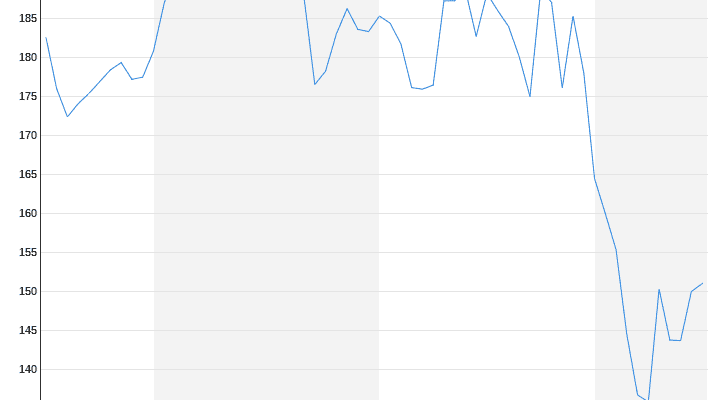To China and America
VW relocates its production because of the Ukraine war
3/15/2022, 5:51 p.m
Under normal circumstances, according to Group boss Diess, VW would have had every reason to be optimistic about 2022. However, the war in Ukraine not only casts a shadow over the business outlook, but is also forcing the carmaker to restructure its supply chains.
The Ukraine war puts a big question mark behind Volkswagen’s optimistic outlook. Because the production of cable harnesses has largely failed since Russia invaded Ukraine, the Wolfsburg-based group has to rearrange its sources of supply. If production in Ukraine is not made up for by other countries in Eastern Europe and North Africa within three to four weeks, Volkswagen would have to revise its business forecast for the current year, said CEO Herbert Diess at the 2021 balance sheet presentation in Wolfsburg. Because of the bottlenecks in Europe, he also announced the temporary relocation of the production of tens of thousands of vehicles from Europe to North and South America and China. “Under normal circumstances, we would have had every reason to be optimistic about 2022,” said Diess.
VW has achieved good financial results, the pandemic is easing and semiconductor supplies are expected to steadily improve over the course of the year. “But the war in Ukraine called our previous outlook into question.” After doubling profits last year, VW management is expecting sales to increase by eight to 13 percent. The operating return is expected to be between seven and 8.5 (2021: 7.7) percent. The Lower Saxony make the forecast dependent on the further course of the Ukraine war, in particular the effects on the supply chains and the global economy as a whole.
With a view to a possible expropriation of parts of the company as Russia’s reaction to western sanctions, Diess said that a withdrawal from the country could be necessary. Volkswagen will implement all sanctions against Russia. The Russian President Vladimir Putin must be stopped. He estimated the value of Volkswagen’s assets in Russia at 0.5 percent of the balance sheet with a view to possible depreciation.
Nothing changes in the stock exchange plans for Porsche
Despite the market turbulence caused by the Ukraine war, Volkswagen is sticking to its IPO plans for the sports car subsidiary Porsche, which expanded its position as the group’s most profitable brand with an operating return of 16.6 percent last year. CFO Arno Antlitz said the preparations for a partial IPO in the final quarter continued. It is still too early to think about possible consequences if the war lasts longer. “We are convinced that a potential separate stock market listing for Porsche AG is a logical next step and would create great value,” stressed Antlitz.
Porsche always retained a high degree of independence when it was integrated into the Volkswagen Group. The group is determined to invest more in future technology. “A Porsche IPO could help us accelerate the execution of this strategy and create additional flexibility.” Group insiders consider it likely that Volkswagen will stick to its plans even if the stock markets continue to plummet.
An insider said that after strong resistance had been overcome in the company, no one would take the project off the table without further ado. Some also see an IPO as a possible impetus for further spin-offs or reorganizations in the group. “That could be a chest solver,” said the person with knowledge of the discussion. This would possibly open up new potential for price increases for Volkswagen, which fizzled out after the announcement of plans for its own battery production a year ago.
Conversion can continue to be managed even in times of crisis
Volkswagen still does not rule out an IPO for its battery activities, which has been in its sights for some time. Strategic partners are currently being sought. Antlitz gave two to three years as a rough time frame for an IPO. Volkswagen had already presented the figures for the past year on Friday. Accordingly, the operating profit almost doubled to 19.3 billion euros despite the lack of chips and higher raw material costs. VW also benefited from the fact that costs were significantly reduced. Four billion euros have been saved in fixed costs since 2019. “All in all, we have shown that our business is robust and that we are better able than in the past to cope with difficulties,” explained Diess.
Volkswagen sees itself in a position to continue with the conversion even in times of crisis. The group increased its cash inflow in the automotive business by 35 percent to 8.6 billion euros. At 26.7 billion euros, net liquidity was almost at the same level as the previous year, although Volkswagen invested heavily and the takeover of the truck manufacturer Navistar also fell during this period. In South America, where the carmaker hadn’t gotten anywhere for years due to a failed model policy and wasted a lot of money, the turnaround in earnings was successful, Volkswagen explained. In North America – i.e. the USA, Canada and Mexico – the main Volkswagen brand has returned to profitability after a few years.
